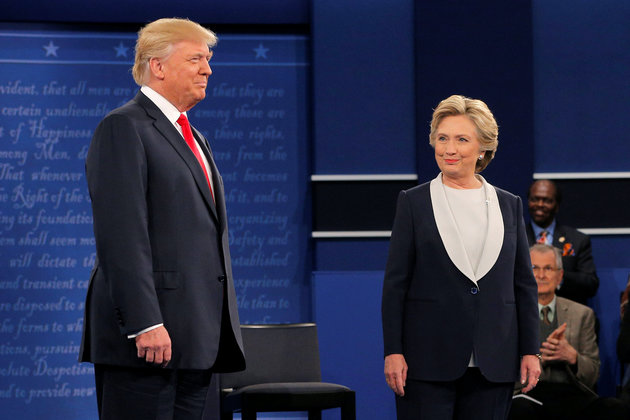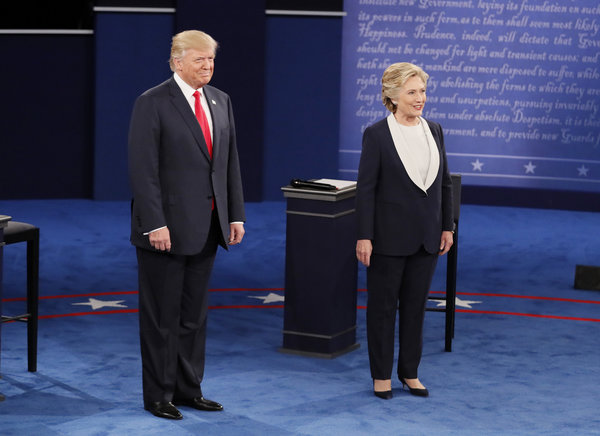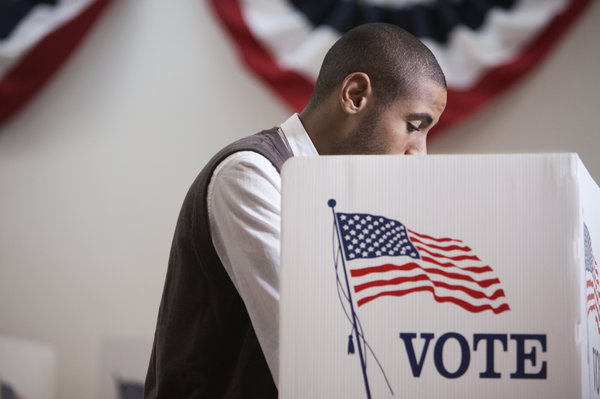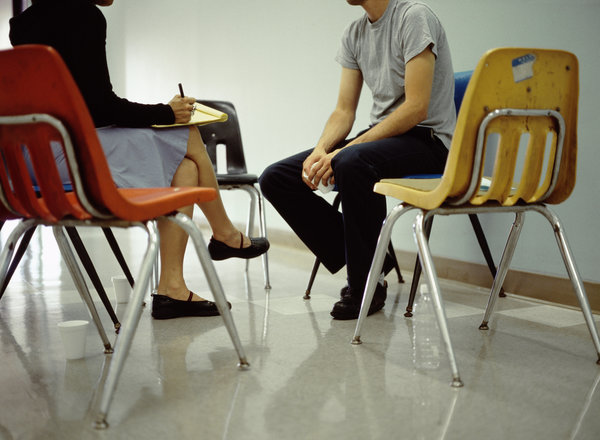
This is giving everyone anxiety. REUTERS/Brian Snyder
Research has confirmed what we already knew in our bodies: This election is completely stressing us out.
Approximately 52 percent of Americans say the presidential race is a “somewhat or very significant source of stress,” according to a new survey published by the American Psychological Association.
The organization polled more than 3,500 adult participants and found that a variety of confrontation-related factors contributed to rising anxiety levels.
“Election stress becomes exacerbated by arguments, stories, images and video on social media that can heighten concern and frustration,” said Lynn Bufka, the APA’s associate executive director for practice research and policy, in a statement. “Particularly with thousands of comments that can range from factual to hostile or even inflammatory.”
Of course, the findings come as no surprise given the circumstances of this particular election and the rhetoric surrounding it. Research shows exposure to negative news can have a detrimental effect on viewers’ mental health.
Case in point: The recent stories surrounding Republican nominee Donald Trump and his misogynistic comments and misconduct toward women. On Wednesday, The New York Times published accounts of two women who alleged Trump sexually assaulted them in the past. A People magazine writer also published a story about an incident in 2005 where Trump forced himself on her when she was a reporter.
This resulted in a barrage of news coverage, some that contained a severe lack of compassion for the victims, which can been triggering for those who have experienced sexual assault. That has the potential to take a toll on wellbeing.
Take first lady Michelle Obama, for example. Obama discussed Trump in an emotional speech in New Hampshire on Thursday, where she slammed his behavior and attitude toward women.
“The shameful comments about our bodies. The disrespect of our ambitions and intellect. The belief that you can do anything you want to a woman,” she said. “It is cruel. It is frightening. And the truth is, it hurts. It hurts.”
The stress surrounding the presidential race isn’t a partisan issue: According to the APA researchers, the increase in anxiety spans across party lines. The 55 percent of registered Democrats and 59 percent of Republicans polled equally said that it’s a source of stress.
This election arguably carries some of the highest stakes in recent history, so it’s natural to physiologically react to that pressure. However, there are ways to keep this brutal election cycle from completely wrecking your wellbeing. Research shows prolonged stress ― yes, like the kind associated with this race ― can influence both physical and mental health.
Below are a few tips on how to exercise self-care and manage election stress until November 8:
Disconnect when you can.

You’re probably constantly diving into your device for the latest updates, or getting push notifications every time a candidate steps up to a podium. Because society is dealing with an unprecedented level of technology compared to just four years ago, it’s important to take mindful breaks from it, licensed clinical psychologist Stephanie Smith told The Huffington Post
“Take a break from Facebook, from your TV, from your apps,” she advised. “Unplugging is super important.”
Educate yourself on the candidates.

The best armor against a deluge of stories and false information is knowledge. Get informed about which politicians most accurately align with your values and learn as much as you can about their visions for the future. Are social issues important to you? How do you feel about immigration? The economy? Take time to know yourself and what you really want from a leader. It’ll make it a whole lot easier to wade through the other nonsense.
A little compassion goes a long way. Research shows that generosity is cyclical: Kindness makes you happier, and happiness makes you kind. Try to engage in that behavior when you’re stressed about the negativity of the news. Volunteer at a local charity, like an animal shelter or a food bank.
“There are still a lot of wonderful things happening in the world and people making positive change,” Smith said. “That’s hard to remember when candidates rip each other apart, so actively remind yourself of that.”
Put everything into perspective.

Tumultuous periods are scary, but it’s important to maintain a big-picture attitude.
“There have been contentious elections before, and we got thorough them and we will this time, too,” Smith explained. “Perspective is important when it comes to stress.”
Go out and vote.

Take control of your stress and make moves by heading to the polls come election day.
“In a democracy, a citizen’s voice does matter. By voting, you will hopefully feel you are taking a proactive step and participating in what for many has been a stressful election cycle,” the APA advised.
Seek help if the stress becomes overwhelming.

If you’re feeling chronic stress — for any reason — it’s always a good idea to check in with a medical professional, Smith says. Excess anxiety can lead to high blood pressure, heart problems and a host of other issues. If your worries seem to spike after watching a debate (whose wouldn’t?) try one of these calming tricks in order to relax. The most important thing is to be in touch with your emotions and be cognizant of when you’re feeling off balance, Smith says. This is especially important during stressful periods like work deadlines, big changes in your personal life and, well, elections.


